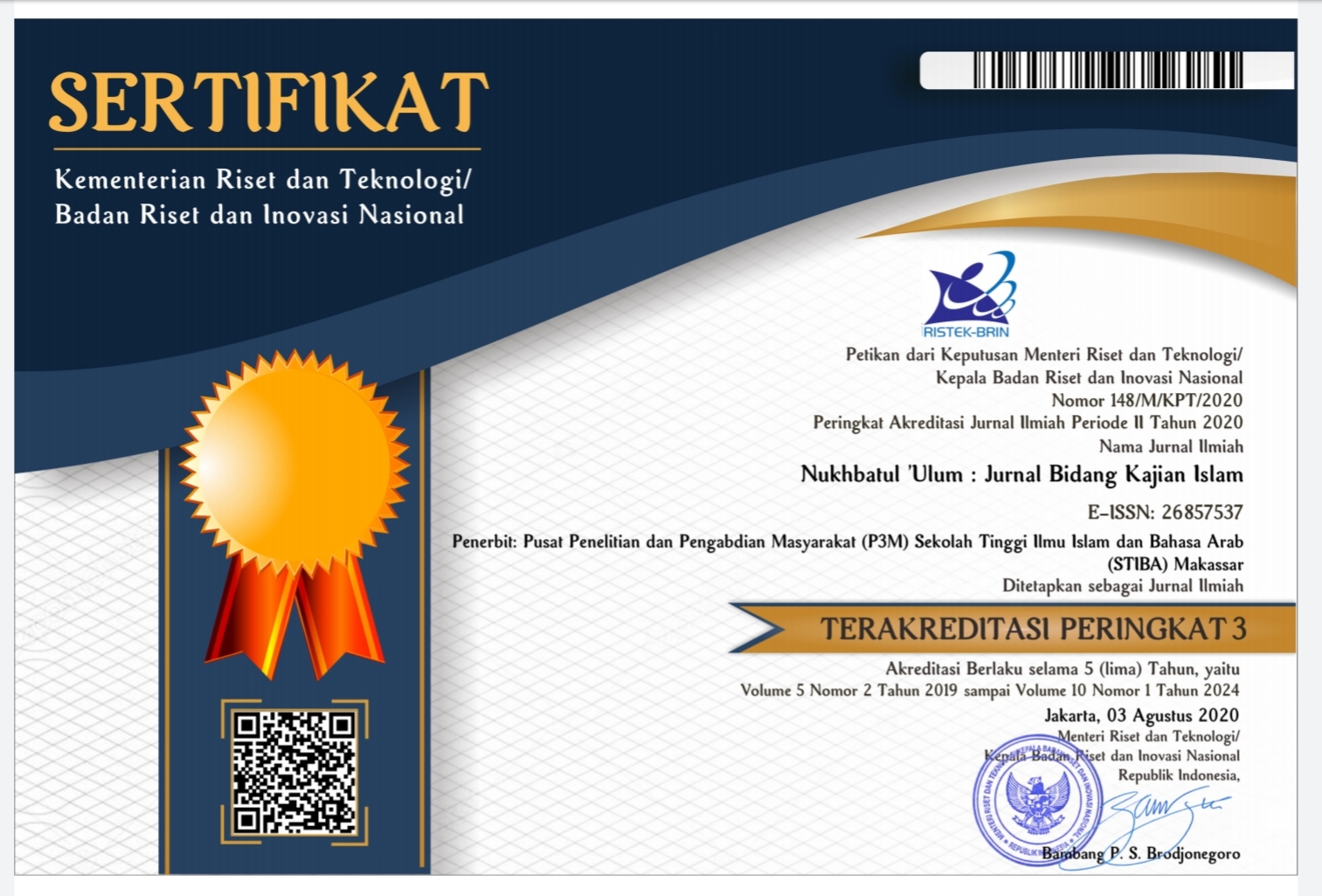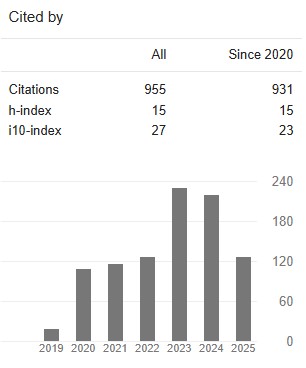Golongan yang Mendapatkan Rukhṣah dalam Ibadah Puasa dan Konsekuensi Hukumnya
DOI:
https://doi.org/10.36701/nukhbah.v4i2.47Keywords:
Category, Rukhshah, Fasting, Law ConsequenceAbstract
This study described the groups granted with Rukhsah (concession) in Fasting and its Legal Consequence. The method used in this study is library research. Vario
us literature was collected to obtain data and facts. These data are collected, sorted, selected and then analyzed to answer the four primary studies that are what is the definition of Rukhsah in general, what are the obstacles that allow Rukhsah to be granted, what is the concept of Rukhsah in fasting? And which categories are granted with the Rukhsah in fasting and what are the legal consequences? The results of the study showed that the Rukhsah is a law that applies based on an argument, which violates existing legal arguments (the original law / azīmah) due to udzur (obstacles). The obstacles as the cause of Rukhshah includes: journey (safar), sickness, necessity, forgetfulness, ignorance, conditions that are very difficult to avoid, and insufficiency. Briefly udzur (obstacles) or the requirements of Rukhsah could be: emergency (ad-darūrah), or the existence of difficulties (al-masyaqq ḍah) or just needs (al-hājah). Rukhsah is concession and the form of concession is ḍ concession granted for not fasting in the month of Ramadhan with the consequence of replacing the missed fasting in accordance with the Shari'ah known as qadāḍ’ or fidyah. The Groups that are granted with the Rukhshah in Fasting are sick people, travelers, menstrual and pureperal women, old people, pregnant or breastfeeding woman. Those are udzur or the causes of a woman to be granted with Rukhsah for not fasting


















